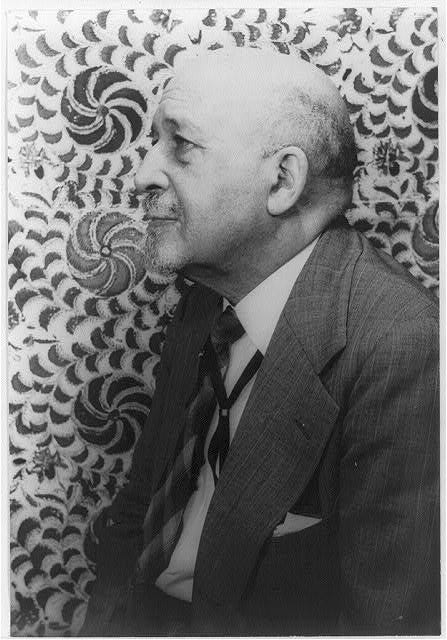The problem of slavery, emancipation, and caste in the United States was no longer in my mind a separate and unique thing as I had so long conceived it…. The race problem … reached all sorts of people and caused endless evil to all men. — W.E.B. DuBois
In a new, summer series, Hard Histories pre-doctoral fellow, Malaurie Pilatte, will share some of the findings from our spring 2024 meeting in Paris and Berlin.
Welcome to the Substack, Malaurie!
During our spring 2024 meetings, we asked participants to reflect upon their hard histories work by sorting through the relationship between the historical past and the ways in which that past is remembered and memorialized in the present. We sat down together as those who study the United States, the Caribbean, and Europe, and then looked for both contrasts and connections. We were also historians of slavery, racism, genocide, feminism, and colonialism, and all experienced with the dilemmas that arise when history and memory collide: in the archives, classrooms, scholarly exchanges, university culture, courthouses, and in our own relationships to historical writing and the production of new knowledge.
These discussions went to the heart of our work at Hard Histories. Many followers know us for how our work explains the past — the history we produce — especially about the relationship of Mr. Johns Hopkins, the university, and the hospital to the past of slavery and racism. There is, however, a second dimension to our work: It is concerned with memory. How, we have asked, have some aspects of the Hopkins past been remembered while other aspects have been forgotten. History and our present day memory of it, it turned out, did not always line up neatly. This has made our work hard in the sense that it is unsettling: New insights into the historical past have also demanded that we adopt new ways of remembering that past.
Part of what has knit us together as a Hard History community of scholars is our shared reading. We knew that our work — premised in connections and collaboration — ran counter to how others have understood the comparative relationship of history and memory. We knew that some viewed memory as a zero-sum game, with various pasts — in our case especially those of slavery, colonialism, and the Holocaust — competing for space, both in narratives and on the ground. Together we read Michael Rothberg's 2009 book Multidirectional Memory: Remembering the Holocaust in the Age of Decolonization. Professor Rothberg's thinking encouraged our collaboration and our sense that there were important connections to be discovered between us. While the histories we write range widely across time and place, the memory of them has often been intertwined.

One scene from Professor Rothberg's chapter 4, "W.E.B. Du Bois in Warsaw: Holocaust Memory and the Color Line,” illustrates this point. By the time Du Bois, the distinguished scholar and activist, visited Poland in 1949, his 1903 declaration that "the problem of the twentieth century is the problem of the color line” was understood to be prophetic. The evidence for his claim was everywhere evident in the United States. Still, encountering first hand the remains of the Warsaw ghetto deepened Du Bois's understanding of his own insight. In the resulting 1952 essay, "The Negro and the Warsaw Ghetto,” Du Bois explained how his encounter with Europe's near past shed light on how he understood the past of Black Americans: "The problem of slavery, emancipation, and caste in the United States was no longer in my mind a separate and unique thing as I had so long conceived it…. The race problem … reached all sorts of people and caused endless evil to all men.”1
Professor Rothberg emphasizes that in this moment DuBois revealed how Holocaust memory was produced in many quarters, including those occupied by Black Americans who were simultaneously wrestling with the history and memory of slavery in the post-war United States. Memory, as Professor Rothberg puts it, has been and can be multidirectional. Our Hard Histories conversations in Paris and Berlin permitted us to see how this "multidirectional” practice of memory continues into our own time and in our own work.
In the coming weeks, pre-doctoral fellow Malaurie Pilatte will provide a closer look at our "multidirectional” discussions. First up are reflections on our visits to Berlin's monumental landscape.
— MSJ
Michael Rothberg, Multidirectional Memory: Remembering the Holocaust in the Age of Decolonization (Stanford University Press, 2009): 116 , citing W.E.B. DuBois, "The Negro and the Warsaw Ghetto,” Jewish Life 6, no. 7 (May 1952): 1, 14-15.



